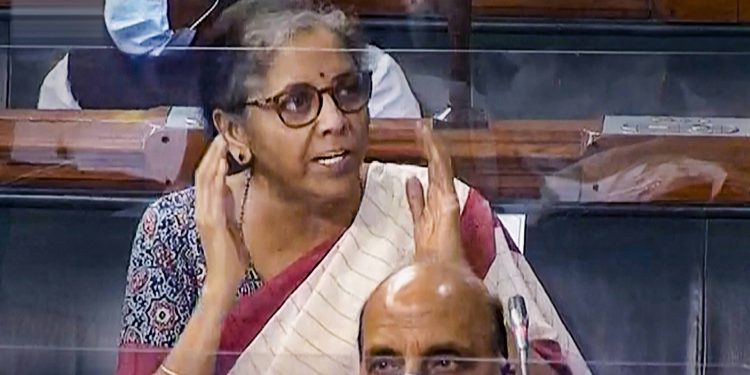New Delhi: The number of billionaires in India came down to 136 in 2020-21 from 141 in 2019-20, based on the gross total income declared in the income tax return, Finance Minister Nirmala Sitharaman informed Parliament Tuesday.
The number of individuals disclosing a gross total income of more than Rs 100 crore (one billion rupees) in a year in his/her return of income filed with the Income Tax Department during 2018-19 stood at 77, she said in a reply to the Rajya Sabha.
“As per the information available with Central Board of Direct Taxes (CBDT), there is no legislative or administrative definition of the term billionaire under direct taxes. Wealth tax has been abolished with effect from 01.04.2016 and, therefore, CBDT does not any more capture information about complete wealth of an individual taxpayer,” she said.
Sharing official poverty numbers, the finance minister said that as per the poverty estimates following the extant Tendulkar Committee methodology, the number of persons living below the poverty line in India was estimated as 27 crore (21.9 per cent) in 2011-12.
The government, with the emphasis on ‘Sabka Saath, Sabka Vikas, Sabka Vishwas’, has initiated various schemes that aim to improve the quality of life of the people and foster inclusive development, she said.
As shown in Economic Survey 2020-21 using a composite ‘Bare Necessities Index’, access to the bare necessities of drinking water, sanitation, hygiene, and housing condition, has improved significantly from 2012 to 2018, with disproportionately higher improvement seen for the poorest households compared to the richest households across both rural and urban areas, Sitharaman said.
Replying to another question, the finance minister said the price situation is constantly monitored by the government and appropriate measures are taken to maintain price stability.
The government has taken several steps to control inflation, including supply augmentation measures to address the demand-supply mismatches of food commodities, such as lowering of import duties on edible oils, liberalising import policy for pulses and edible oils, signing MoUs for import of pulses with supplier countries, imposing stock limits for pulses and utilisation of pulses stocks for cooling down prices through supply to states and disposal through Open Market Sales, she said.
In reply to a separate question, Sitharaman said fraud in Urban Cooperative Banks (UCBs) declined to 323 in 2020-21 as against 568 in 2019-20.
With regard to State Cooperative Banks (SCBs), she said, it has come down to 482 cases in 2020-21 from 508 in the previous year.
As many as 1.33 lakh individuals got unsecured loans sanctioned for COVID-19 treatment by public sector banks (PSBs) as of July 15, 2021, Sitharaman said in another reply.
PSBs have informed that they have announced the unsecured loan facility for individuals to meet the COVID-19 treatment cost for the individual and his or her family members, she informed.
All existing customers affected with COVID-19 are eligible to avail this collateral-free loan facility from PSBs in the form of a term loan, with repayment periods ranging from three to five years and an initial repayment moratorium period ranging from three to six months, she added.
PTI






































